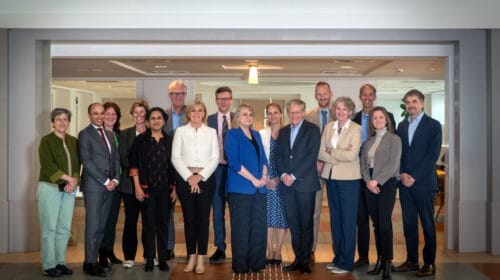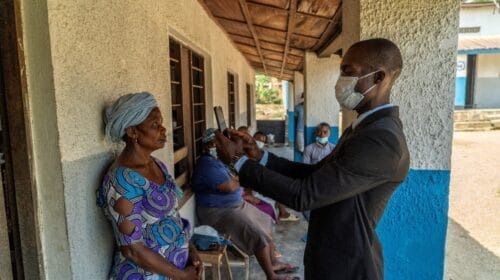DR Congo: Insecurity and attacks mean Ebola will keep spreading, warns world health agency

In Geneva, spokesperson Christian Lindmeier condemned the “deplorable” targeting of two Médecins Sans Frontières (MSF) facilities earlier this week in Katwa and Butembo.
WHO was “doing everything and talking with everyone” to ensure that the operation to overcome the current Ebola outbreak continues, he insisted.
To date, the agency and its partners have relied on armed protection from UN peacekeepers from the United Nations Stabilization Mission in the DRC (MONUSCO), to operate in a region that’s home to more than 100 non-State armed groups.
“In the light of the recent attacks and enhanced discussion with MONUSCO forces, with local authorities”, said Mr. Lindmeier, he said they were working on improving security to ensure that patients and staff were better protected, “and that everything can be done to get this outbreak under control.”
He added that considering the “deteriorating” situation, there was nonetheless “a likelihood of an increase of Ebola cases. That is definitely a given.”
555 lives lost so far to Ebola outbreak
According to the DRC health authorities, the latest outbreak of Ebola which began on 1 August 2018, has claimed 555 lives.
There have been 885 cases of the virus – which is endemic in the vast country, causing high fever, bleeding and death in around 60 per cent of cases – with 820 confirmed infections and 65 probable.
Mr. Lindmeier confirmed that following Wednesday’s arson attack on the Butembo facility, four patients had fled and run away while the attack was ongoing. But they “have not run away” from treatment.
WHO and MSF staff were unhurt but security personnel “did experience casualties”, he added.
“It’s a very understandable reaction that under fire you try to save your own life more than anything,” the WHO spokesperson said, in relation to the missing patients: “Three have already voluntarily returned, that’s also important to note – they understand how important it is – and the fourth for whatever reason hasn’t come back yet or hasn’t been traced yet,” he added, saying that finding the patient had to be a priority now, along with tracing those they had all come into contact with.
In addition to attacks on Ebola treatment centres, healthworkers have faced varying levels of resistance from some local communities in trying to trace anyone who might have come into contact with infected carriers.
“Apart from the obstacles we are facing there are ongoing rumours in the communities that the Ebola virus doesn’t even exist,” Mr Lindmeier said. “And if such a rumour (takes) hold, that makes it easy for groups to not believe in what you see, and what the patients are going through, and that hampers the operations.”
Following the most recent Butembo attack, WHO and partners are working to ensure the safety of the patients and staff. Patients have been transferred to a centre in Katwa.
“It is a priority of the response to ensure quality clinical care for the patients,” the agency said in a statement.




